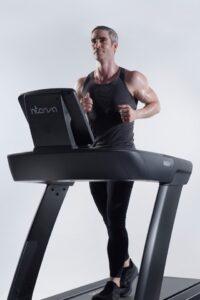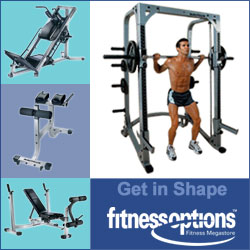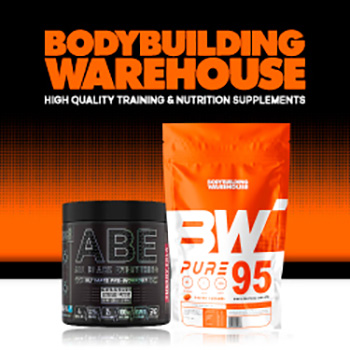Train Smarter, Not Harder With This Best Folding Treadmills

You don't need a whole room for a treadmill anymore. The trick is to know how much space you really need not just the size of the treadmill itself and to take advantage of new and improved folding technologies.
Folding Treadmills That Are Worth the Investment
Today’s folding treadmills have advanced far beyond the unstable models of the past. Top of the line folding treadmills, such as the NordicTrack 1750 and Sole F80, now feature sturdy steel frames and hydraulic assist mechanisms. These provide a solid running platform when in use and easy storage when folded up. The most cutting-edge models even have automatic folding capabilities, so you don’t have to struggle with lifting a heavy deck. Most models are now designed for one person to operate, and they include safety locks to prevent any accidental unfolding.
Make the Most of Incline Walking for Low Impact Workouts
Did you know that incline walking is a secret hack for low impact workouts on your home treadmill. By setting the incline to 8-12%, you can achieve the same cardiovascular benefits as running. However, this comes with 50% less joint stress. This is a great option for those who are in recovery, older adults, or anyone with joint issues who still want to get a good workout.
Incline training is beautiful because it's metabolically efficient. You can burn about the same number of calories walking at 3.5 mph on a 10% incline as you can running at 5.0 mph on a flat surface. The best part. You can achieve this with significantly less impact force. Many of the best home treadmills now also have decline settings. This lets you simulate downhill training, which works different muscles. It improves your overall stability for real world conditions.
Gradual Programs For Building Stamina
It takes time and careful planning to build stamina, and modern home treadmills are ideal for this purpose. Most high end models come with progressive training programs that gradually increase the length and intensity of your workouts based on your performance data. These programs, which are backed by scientific research, help to avoid the plateaus that often occur when you design your own workouts. They do this by introducing precisely timed variables. These include interval work, changes in incline, and recovery periods.
Running coaches often suggest a 10% rule for the best development of stamina. This rule suggests that you should only increase your weekly running volume by 10% at a time. This allows your body to adapt to the increased exercise while also reducing the risk of injury. The tracking features on modern treadmills make it easy to measure this progression and manage it. They also show clear progress metrics that can help keep you motivated during the challenging building phases. Many users find that structured programs produce faster results than self directed training. This is especially true when the treadmill automatically adjusts parameters to keep you in optimal training zones.
Looking After Your Treadmill: Tips for Long Term Care
High quality treadmills are expensive but can last for years if you look after them properly. Most treadmills break down because of simple issues that you can prevent with regular maintenance. Regular maintenance also makes your treadmill safer to use and helps it to perform better.
Regular Cleaning
After every workout, make sure to clean the console and handrails with a slightly wet microfiber cloth. This helps to get rid of sweat and fingerprints that can gradually damage the electronic parts. Every week, vacuum the area under and around the treadmill because dust build up can get into the motors and electronic systems. If your household is always busy, it might be a good idea to keep a microfiber cloth and a spray bottle with a diluted non abrasive cleaner close to your treadmill for easy cleaning.
How to Adjust and Lubricate Your Treadmill Belt
It's important to keep your treadmill belt properly adjusted and lubricated. This ensures your machine runs smoothly and lasts a long time. Once a month, turn your treadmill on to 2 mph and check to make sure the belt is centred on the deck. If it's not, you'll need to adjust it according to the specific instructions provided by the manufacturer. This usually involves tightening or loosening the hex bolts at the back of the treadmill.
Each model has its own lubrication needs, but most high end home treadmills need their belts lubricated every three to six months. This depends on how much they’re used. Always use the silicone based product recommended by the manufacturer or you could damage your machine. Some of the latest models have self-lubricating systems or maintenance indicators. Thus, you don’t have to remember when to do it.
Set recurring reminders in your phone's calendar to help you remember your maintenance schedule. This will help you avoid the all too common situation where you forget to maintain your treadmill until it starts to have problems. If you keep up with regular maintenance, your treadmill will typically last 7-10 years. But if you neglect it, you might have to pay for expensive repairs or even replace it within 3-5 years.
When cleaning the belt, it's best to use a damp cloth on the top surface from time to time. However, avoid applying cleaners directly to the belt as they can affect the grip. This could cause the material to break down. If you use your treadmill a lot, you might want to think about buying a cheap treadmill mat. This can help stop dust and debris from getting sucked into the motor compartment.
- Every month: Check the alignment and tension of the belt
- Every quarter: Inspect and tighten all visible bolts and connections
- Every 3-6 months: Apply appropriate silicone lubricant under the belt
- Every year: Remove the motor cover and carefully vacuum dust (with the machine unplugged)
- Every 2 years: Schedule professional maintenance for heavily used machines
How To Troubleshoot Common Issues Before Calling For Service
Many problems with treadmills can be solved easily and don't require professional service. If your console doesn't power on, check that the safety key is properly inserted. Also, ensure the machine is plugged into a dedicated circuit, and the circuit breaker hasn't tripped. If the belt slips or hesitates during use, adjusting the tension properly often solves the problem. Unusual noises usually mean that the belt is misaligned or needs lubrication, too. Most manufacturers provide troubleshooting guides specific to your model. Following these can save you a lot of money on service fees for simple fixes.
What to Do After Buying Your Treadmill
After you've chosen the perfect treadmill for your home, you'll need to get ready for its delivery. Make sure to measure your doorways and stairways to ensure the treadmill can be brought inside. Many sellers offer setup services, which can be beneficial. Setting up the treadmill correctly can impact its performance and whether its warranty is valid.
After your treadmill is set up, start using it with shorter, easier workouts for the first week. This will help you get used to the feel and features of your new machine.
In the second week, start trying out the built-in programs and any apps that can be used with your treadmill. Slowly start increasing the intensity of your workouts as you become more familiar with how to use all the controls and safety features.
Remember, it's more important to be consistent with your workouts than to have intense workouts. You'll see better results from regularly using your new treadmill than from having intense workouts every once in a while. These could lead to you getting burned out or injured.
Want to see real results from your workouts? Our fitness equipment is the key to reaching your goals. Whether you're looking to lose weight, build muscle, or improve your overall health, we've got the tools and expertise to help you succeed. Click Here to discover how our fitness equipment can transform your body and your life.






